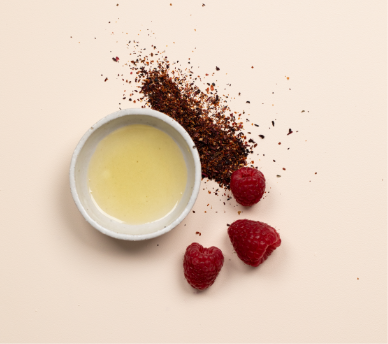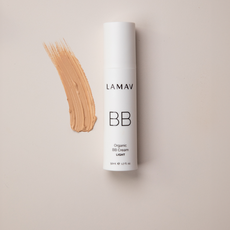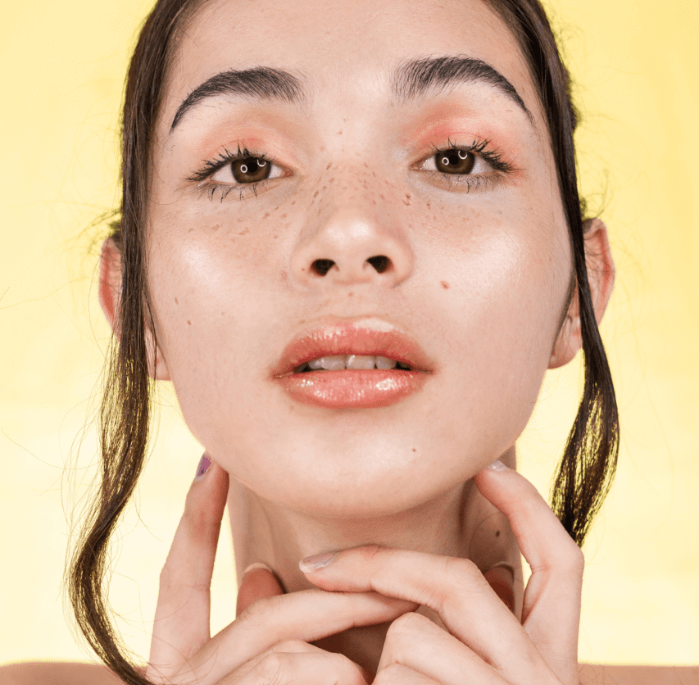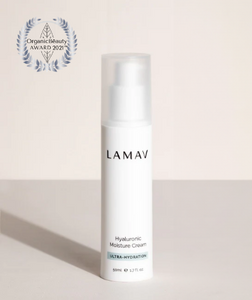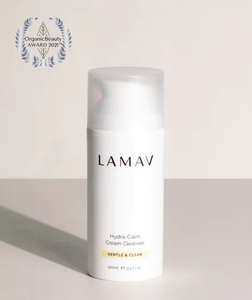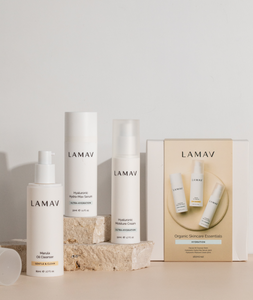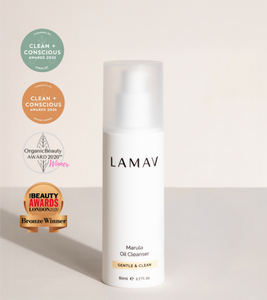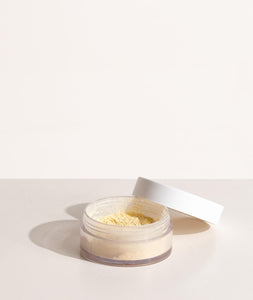What are the differences between organic and non-organic makeup?
How many makeup items do you use daily? I personally use liquid foundation, eyebrow pencil, mascara, and lip gloss. Sometimes, if I am too lazy, I skip applying mascara, so as you can see, my beauty routine is not so complicated.
In contrast with me though, my best friend used primer, mineral foundation, blush, highlighter, setting powder, mascara, eyeliner, eyebrow pencil, lipstick and a bit of gloss on top. Quite a lot of stuff, no? Have you ever wondered what is this “stuff” made of? Do you know anything about the chemicals used in the formulation of your favorite lipstick? Do you know anything about the safety of these chemicals? If you don’t, we’d love to tell you more about the ingredients used to make the most widely used “beauty weapon” – Makeup.
Differences & Dangers: Makeup that isn’t certified organic almost certainly contains chemicals linked to cancer, endocrine issues, weight gain, and even ADHD & autism. If you care about your health and that of those around you, it’s best to avoid products that aren’t certified organic!
As we’ve already mentioned in previous articles, the skin is the largest organ in our bodies and through it we absorb a high percentage of the chemicals that our personal care products are formulated with. In fact, just from the makeup, you are using on a daily basis you absorb approximately 2 kg of chemicals per year. That’s a lot. Especially if some of these chemicals are:
Artificial colors

Without color, makeup would not exist. Color is what makes things stand out. Using color is a way of expressing your personality, sharing your feelings, and even revealing your current mood to the people around you. Have you ever asked yourself what makes your eye shadow palette so colorful or your lipstick so bright? In most cases, artificial colors are made of coal tar. Coal tar is a mixture of various petroleum-derived chemicals. If not purified well, coal tar can contain traces of heavy metals. Not only that they threaten your overall health, but they can also cause hypersensitivity & irritations or clog your pores, leading to breakouts. Doesn’t sound like a good way to “stand out”?
(We can suggest better ways for “standing out” – subscribe to our newsletter!)
What to look for on the label, if you want to avoid troubles:
FD&C, D&C, Blue 1, Green 3, Red 27 Lake, Yellow 5 Lake, CI (followed by a number), etc.
Lead
This is one of the few “bad” ingredients the mass consumer (and surely the beauty junkies) has heard of. What is lead and why it is so dangerous? Lead is a naturally occurring heavy metal. Unfortunately, “naturally” doesn’t mean it is safe. Lead is a strong neurotoxin, increases the risk of infertility because it damages the reproductive system. Like most heavy metals, lead builds up in your body which means that regular exposure increases the risk of adverse effects.
Interesting fact: If you read the label of your favorite lipstick, you won’t see lead listed as an ingredient. It makes its way into the product by contaminating the pigments used. Lead can be found as a contaminant in lipsticks, foundations, and nail polish.
If you want to learn more about the dangerous chemicals that can be found in skincare and makeup, subscribe to our newsletter!
Nanoparticles
Nanoparticles are particles that have been fragmented to sizes below 100nm and are often used in sunscreens, moisturizers, lipsticks, mineral makeup, etc. Nanoparticles are less visible when applied on the skin which makes them ideal as ingredients in almost all kinds of makeup. They make the application easier and provide the smooth, glow-like finish, we all love so much. Apart from that, nanoparticles aid the penetration of certain active ingredients to the deeper layers of the skin. Nevertheless, as you can guess, along with these active ingredients some unwanted compounds may pass the barrier of the skin and enter your bloodstream. Even though the safety of their use in personal care products hasn’t been studied in detail, nanoparticles are suspected to cause damage to the cellular level.
Apart from the above-mentioned chemicals, regular makeup is “famous” for being loaded with preservatives, like formaldehyde and parabens (linked to cancer) and all kinds of petroleum-based compounds (mineral oil and PEGs, as most widely used). Not nice.
After reading all this you are probably wondering “Okay, does that mean I have to stop using makeup?”.
“No, you don’t have to!”. There are safer, greener, and healthier alternatives. Here is what organic, all-natural makeup has to offer…
Mica and Iron Oxide
With organic makeup you can still enjoy all colors you can imagine on your face! How? Organic makeup products are formulated with iron oxide (the good CI) completely safe alternatives of the artificial colors used in regular makeup. Love the way your skin glitters gently after you apply bronzer/blush? Is there a safe ingredient that can make you glow? Mica is a mineral mined from the earth that reflects light and adds delicate shimmer to the skin, making it look smoother and more radiant. It is used in the formulation of face powders/foundations, blushes & bronzers, while its “non-shimmery variation” – for mattifying and setting powders. And, yes – it is safe!
Natural Preservatives
Extending the shelf life of a product doesn’t necessarily require 3-5-10 super strong chemicals that not only bacteria should be scared of. Natural preservatives work just as good. I’ll be honest, though – they won’t preserve your cream for 24 months, but, hey – 24 months? If a product doesn’t lose its properties and quality in 24 months imagine how poisonous it is – even bacteria don’t want it! Be sure that natural preservatives like vitamin E (a super powerful antioxidant that we worship!), various essential oils (like Rosemary oil), and fruit extracts (for example grapefruit seed and pulp extract) will keep microorganisms away from your cream for at least 6 months. And the best thing is – not only they are not harmful, but they are actually good for your skin!
Free of Heavy Metals
Organic makeup is formulated without the “help” of petroleum byproducts. No petroleum derivatives mean, no traces of heavy metals. No traces of heavy metals means your liver, brain, and reproductive system will not be harmed. Mineral oil is not the only ingredient that makes your skin look and feels “smooth and hydrated” (without actually smoothing or hydrating it, but that’s another story). Vegetable glycerin and natural oils like Jojoba oil, that mimics the sebum your skin produces, are way better when it comes to preserving the water in your cells and getting the dewy look we all want.
Last but not least – organic makeup is enriched with natural oils, minerals, vitamins, and other bio-active substances that benefit your skin. Not only it does no harm, but it helps! Don’t you think it’s worth checking it out? Detoxify your skin from harmful chemicals with La Mav’s Organic Makeup! We are sure you’ll love the results and your body will thank you!

If you liked this post, let us know by sharing it! Share and get $5 off for your next order with La Mav!



